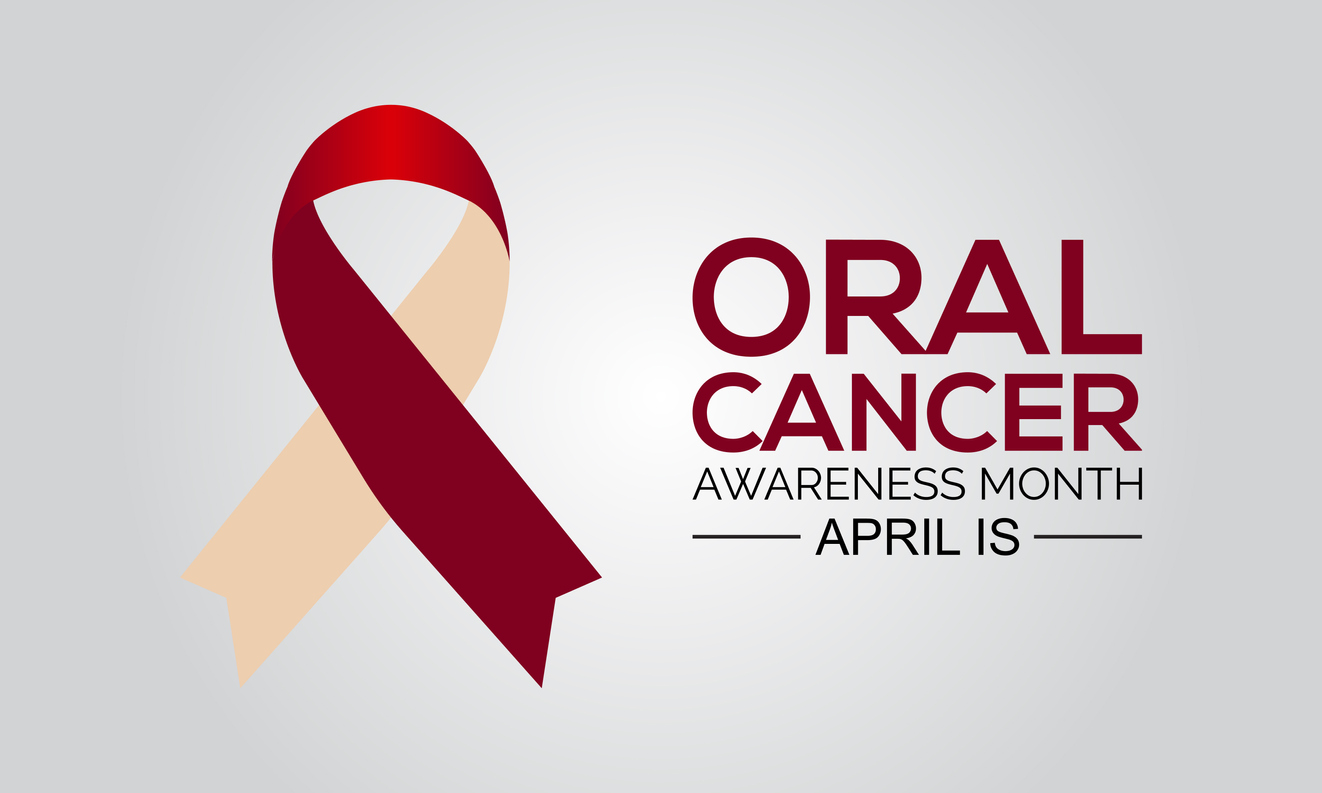Did you know that April is Oral Cancer Awareness Month?
This annual observation is important because it raises awareness for a type of cancer that many people know very little about. In fact, nearly two-thirds of cases are diagnosed in the later stages.
But, early detection is critical to save lives. Here’s what you need to know.

What is oral cancer?
Oral cancer, sometimes called oral cavity cancer, begins in the mouth. Oropharyngeal cancer begins in the middle part of the throat — just behind the oral cavity.
Oral and oropharyngeal cancers most often affect the tongue, the tonsils and oropharynx (the part of the throat behind the mouth), and the gums, floor of the mouth, and other parts of the mouth.
The American Cancer Society estimates there will be about 58,450 new cases of oral cavity or oropharyngeal cancer in the United States in 2024. In addition, the organization predicts about 12,230 deaths from oral cavity or oropharyngeal cancer in 2024.
Risk factors for oral cancer
Smoking and tobacco use, as well as heavy alcohol consumption, are some of the biggest risk factors for oral cancer. That’s because of how these products can damage the DNA of cells that line the mouth and throat while impeding the body’s normal DNA repair.
That said, one of the fastest-growing, lesser-known risk factors for oral cancer is HPV (human papillomavirus), which is causing younger, healthy, non-smoking individuals to be impacted. In fact, HPV is thought to cause 70% of oropharyngeal cancers in the United States.
Early detection
As with any cancer, early detection for oral and oropharyngeal cancer is critical for the best prognosis.
While there’s no routine screening test or program, your regular six-month dental check-up is one of the most effective ways to find oral and oropharyngeal cancers (and pre-cancers) early.
You may have not even realized your dental professional was checking your entire month for any signs of cancer, but at SMILE! Advanced Dental Center, this is always a routine part of our exams and teeth cleanings.
It’s important to tell your dentist if you have any risk factors for oral cancer, because there are additional tests that use special dyes or lights to check for abnormal areas in those who are at higher risk.
Signs and Symptoms
While six-month dental cleanings and exams are key, it’s still important to pay attention to any strange signs or symptoms between your office visits.
According to the American Cancer Society, these signs and symptoms could be indicative of oral or oropharyngeal cancer:
- A sore on the lip or in the mouth that doesn’t heal
- Pain in the mouth that doesn’t go away
- A lump or thickening in the lips, mouth, or cheek
- A white or red patch on the gums, tongue, tonsil, or lining of the mouth
- A sore throat or a feeling that something is caught in your throat that doesn’t go away
- Trouble chewing or swallowing
- Trouble moving the jaw or tongue
- Numbness of the tongue, lip, or other area of the mouth
- Swelling or pain in the jaw
- Dentures that start to fit poorly or become uncomfortable
- Loosening of the teeth or pain around the teeth
- Voice changes
- A lump or mass in the neck or back of the throat
- Weight loss
- Pain in the ear
This Oral Cancer Awareness Month, make sure you have your next routine dental cleaning and exam on the calendar. It’s not only important for a bright smile, but also your overall health!
___
If you’re in the Summerville, SC, area, give SMILE! Advanced Dental Center a call at 843-873-1261 or click here — and we’ll get an appointment on the books for you.


0 Comments